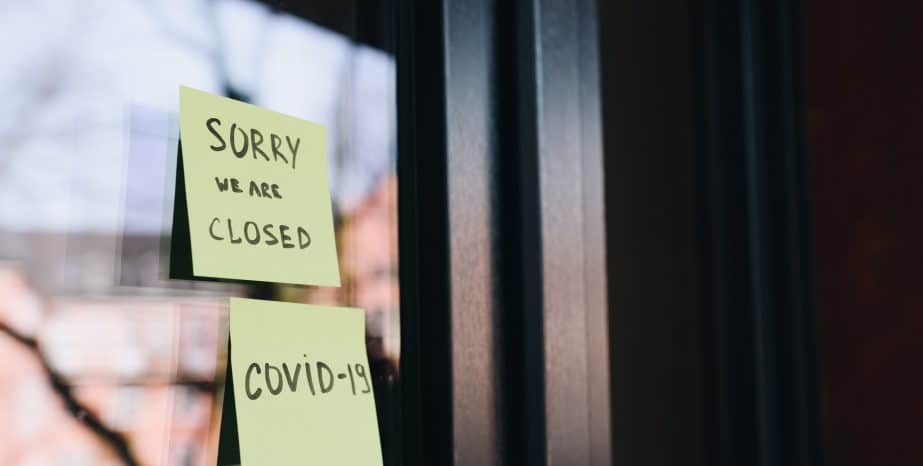
COVID-19 and Business Interruption Insurance: Recent Cases Favor Business-Owners
Almost as soon as coronavirus lockdowns began, restaurants and other commercial insurance policyholders began filing business interruption claims. These policyholders claimed that forced closure triggered these policy provisions. Usually citing one of the arguments below, insurance companies almost universally denied these claims. As a result, many business-owners abandoned all hope of financial relief.
But now, the legal tide may be turning. In a string of decisions from around the country, courts have indicated a willingness to at least consider these claims. That opportunity is all that a good Los Angeles insurance attorney needs. An old saying in the law, where there’s a wrong there’s a remedy, is not quite true. It should state that where there’s a wrong and an opportunity to correct that wrong, there’s a remedy. Admittedly, that second phrase might be more accurate, but doesn’t have the same je ne sais quoi.
Boardwalk Ventures of California v. Century National Insurance Company
The insurance company argued that coronavirus was not a hazard which tangibly altered the property, therefore the policy did not cover the loss. The court disagreed, ruling that the policy might apply, even if the business didn’t show a “distinct, demonstrable, physical alteration of the property.”
Insurance companies usually sell business interruption insurance as part of a commercial bundle. The premium is low, because anticipated losses include things like fires, hurricanes, and other physically destructive events which hardly ever happen. So, insurance companies did not expect to pay on these policies. That’s one reason why they fight these matters so vigorously.
This case is important because local cases carry additional weight with local judges, from a technical and personal standpoint.
Hill & Stout PLLC v. Mutual of Enumclaw Insurance Company
Insurance company lawyers filed a motion to dismiss, claiming that the lockdown, as opposed to COVID-19 itself, caused the company’s financial loss. That’s not a bad argument. But the court refused to dismiss the case, holding that the policy defined “physical loss” ambiguously.
Usually, courts only grant a motion to dismiss if there is no way the other party could possibly win. Discovery usually hasn’t happened yet at this point, so most courts are willing to give the other side a chance to establish its claims or defenses. An attorney must simply show that such claim or defense is at least theoretically winnable. That’s a much lower standard of proof than the one used at trial.
Elegant Massage, LLC v. State Farm Mutual Automobile Insurance Company
This case is important because State Farm is by far the largest commercial insurance company in the United States. Its lawyers argued that payment was unavailable because COVID-19 did not physically destroy the property. The court ruled that if a property “is uninhabitable, inaccessible, or dangerous to use because of intangible, or non-structural, sources,” the policy could apply.
Elegant Massage echoes the ruling in Boardwalk Ventures. The more favorable case law an attorney cites, the stronger an argument becomes. Pretty much any court can make any ruling. Two courts that reach the same conclusion could show a pattern. Three or more courts clearly establishes a precedent, especially if these courts are from different parts of the country.
North State Deli, LLC v. Cincinnati Insurance Company
North State Deli is one of the first cases which granted summary judgement in favor of a policyholder. Several other courts in several other states have followed suit, although to be fair, some of them involve some special circumstances, such as a business on tribal land.
Furthermore, the policy at issue was rather broad. It covered any “direct physical loss” to the property. Insurance company lawyers argued that the policy included an implied structural alteration requirement, like the aforementioned fire, but the court didn’t buy it.
This case was a major win for policyholders and it also shows the attitude of insurance company lawyers. Generally, insurance companies pay if they are clearly legally required to do so. But if there is any way to get out of paying the claim, even if it’s a rather obscure argument, they will try to get out of it. This hardline stance often makes a bad faith claim easier to win. But that’s the subject of another blog. If the insurance company denied your business interruption claim, now is a good time to say “I’ll see you in court.” For a free consultation with an experienced insurance attorney in Los Angeles, contact the Law Offices of Eslamboly Hakim. After-hours and victual meetings are available.
Photo by Anastasiia Chepinska on Unsplash
Sharona Hakim
Sharona Eslamboly Hakim, Esq. is a successful personal injury attorney and the principal of the Law Offices of Eslamboly Hakim firm in Beverly Hills, California.








